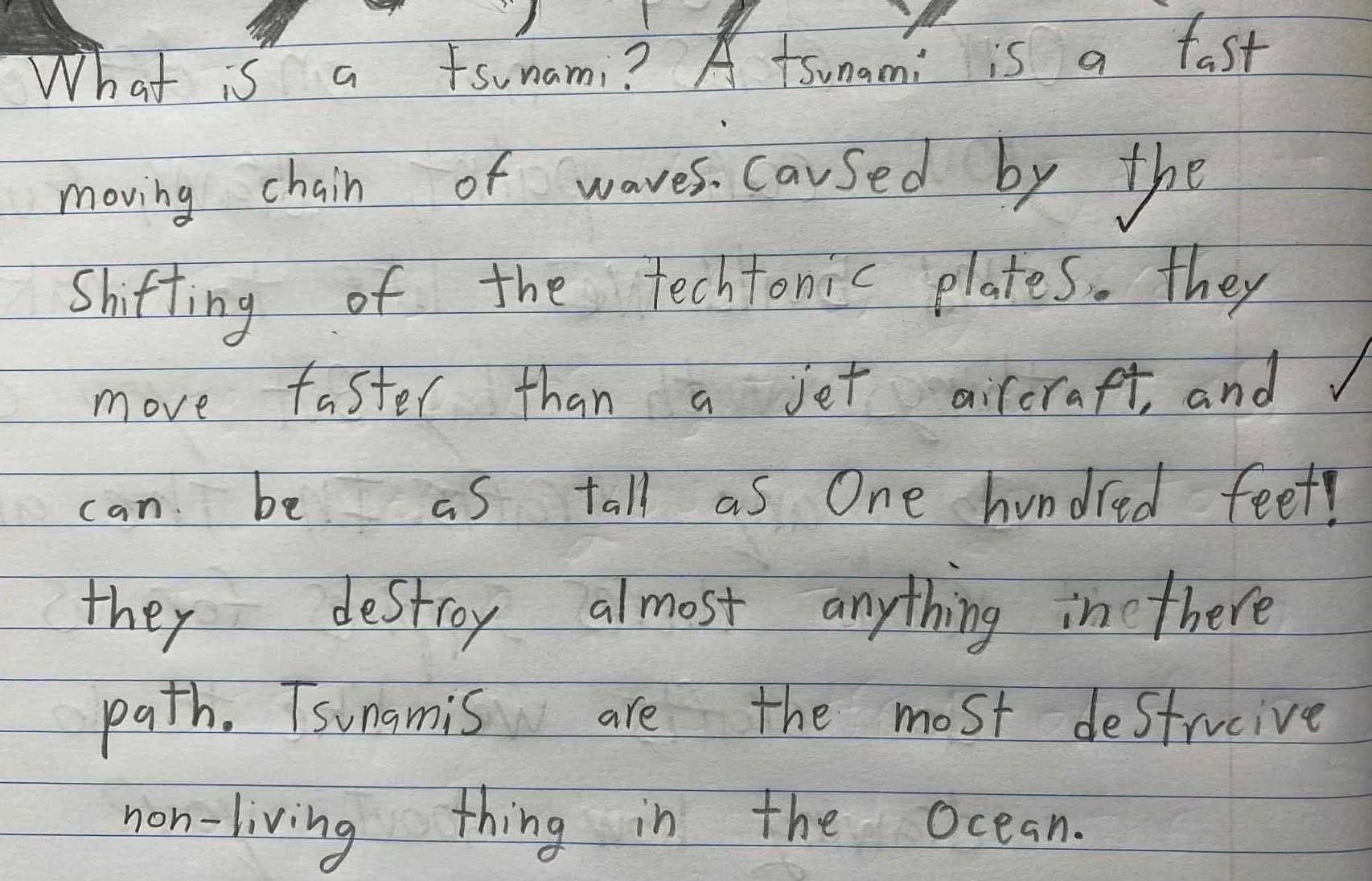 Image 1 of 1
Image 1 of 1


Assessing Writing Against the NZC: Video Workshop + Assessment Tools
About This Resource
This practical video workshop and resource pack has been created to help teachers confidently assess writing against the New Zealand Curriculum (NZC).
It introduces two teacher-friendly tools designed to make the new Writing Strand clearer, more accessible, and easier to use in day-to-day planning and assessment.
Across the video, you’ll be guided through:
what the revised NZC writing objectives actually mean
how the three sub-strands (Transcription, Composition, Writing Processes) work
what skills are most critical at each phase and year level
how to use assessment information to identify students who may need extra support
how to avoid common pitfalls that slow writing progress
Whether you’re new to the NZC update or just want clearer tools to support your judgments, this resource provides straightforward guidance you can put into practice immediately.
What’s Included
1. Video Workshop (streaming)
A clear, informal, step-by-step walkthrough covering:
The new Writing Strand in the NZC
How the objectives fit together
Plain-language explanations of each sub-strand
The purpose and structure of each tool
How to identify “red flags” in writing
Examples of using the assessment tools with real student samples
2. Downloadable PDFs
You’ll receive both supporting documents featured in the video:
A Teacher’s Companion to Writing in the NZC
A plain-language rewrite of the Ministry’s Writing Strand content — simplified, decluttered, and organised so you can quickly see what matters at each phase and level.
Highlights:
clearer wording
reduced repetition
critical skills highlighted
essence of all mandated objectives retained
Informal Assessment of Writing Progress (IAWP)
An easy-to-use assessment tool designed for:
Summative purposes — supporting reliable OTJs using multiple sources
Formative purposes — helping identify writing “red flags” early
Skills are aligned to the NZC and grouped into:
Transcription
Composition
Writing Processes
Critical skills are emphasised so teachers can spot foundational gaps before they become barriers to progress.
What You’ll Learn
By the end of this workshop you will:
understand the new NZC Writing Strand in practical terms
recognise which skills genuinely matter most for progress
know how to use the IAWP alongside other evidence
identify early writing difficulties and respond with purpose
feel more confident planning for the needs of your writers
Who This Resource Is For
Perfect for:
primary teachers
literacy leads
beginning teachers
SENCOs
team leaders
anyone needing a clearer way to interpret and apply the NZC Writing Strand
Why Teachers Love This Resource
written for busy teachers
removes jargon and unnecessary repetition
practical examples and honest commentary
grounded in real classroom practice
aligns cleanly with the NZC
helps improve both teaching and assessment
About This Resource
This practical video workshop and resource pack has been created to help teachers confidently assess writing against the New Zealand Curriculum (NZC).
It introduces two teacher-friendly tools designed to make the new Writing Strand clearer, more accessible, and easier to use in day-to-day planning and assessment.
Across the video, you’ll be guided through:
what the revised NZC writing objectives actually mean
how the three sub-strands (Transcription, Composition, Writing Processes) work
what skills are most critical at each phase and year level
how to use assessment information to identify students who may need extra support
how to avoid common pitfalls that slow writing progress
Whether you’re new to the NZC update or just want clearer tools to support your judgments, this resource provides straightforward guidance you can put into practice immediately.
What’s Included
1. Video Workshop (streaming)
A clear, informal, step-by-step walkthrough covering:
The new Writing Strand in the NZC
How the objectives fit together
Plain-language explanations of each sub-strand
The purpose and structure of each tool
How to identify “red flags” in writing
Examples of using the assessment tools with real student samples
2. Downloadable PDFs
You’ll receive both supporting documents featured in the video:
A Teacher’s Companion to Writing in the NZC
A plain-language rewrite of the Ministry’s Writing Strand content — simplified, decluttered, and organised so you can quickly see what matters at each phase and level.
Highlights:
clearer wording
reduced repetition
critical skills highlighted
essence of all mandated objectives retained
Informal Assessment of Writing Progress (IAWP)
An easy-to-use assessment tool designed for:
Summative purposes — supporting reliable OTJs using multiple sources
Formative purposes — helping identify writing “red flags” early
Skills are aligned to the NZC and grouped into:
Transcription
Composition
Writing Processes
Critical skills are emphasised so teachers can spot foundational gaps before they become barriers to progress.
What You’ll Learn
By the end of this workshop you will:
understand the new NZC Writing Strand in practical terms
recognise which skills genuinely matter most for progress
know how to use the IAWP alongside other evidence
identify early writing difficulties and respond with purpose
feel more confident planning for the needs of your writers
Who This Resource Is For
Perfect for:
primary teachers
literacy leads
beginning teachers
SENCOs
team leaders
anyone needing a clearer way to interpret and apply the NZC Writing Strand
Why Teachers Love This Resource
written for busy teachers
removes jargon and unnecessary repetition
practical examples and honest commentary
grounded in real classroom practice
aligns cleanly with the NZC
helps improve both teaching and assessment
